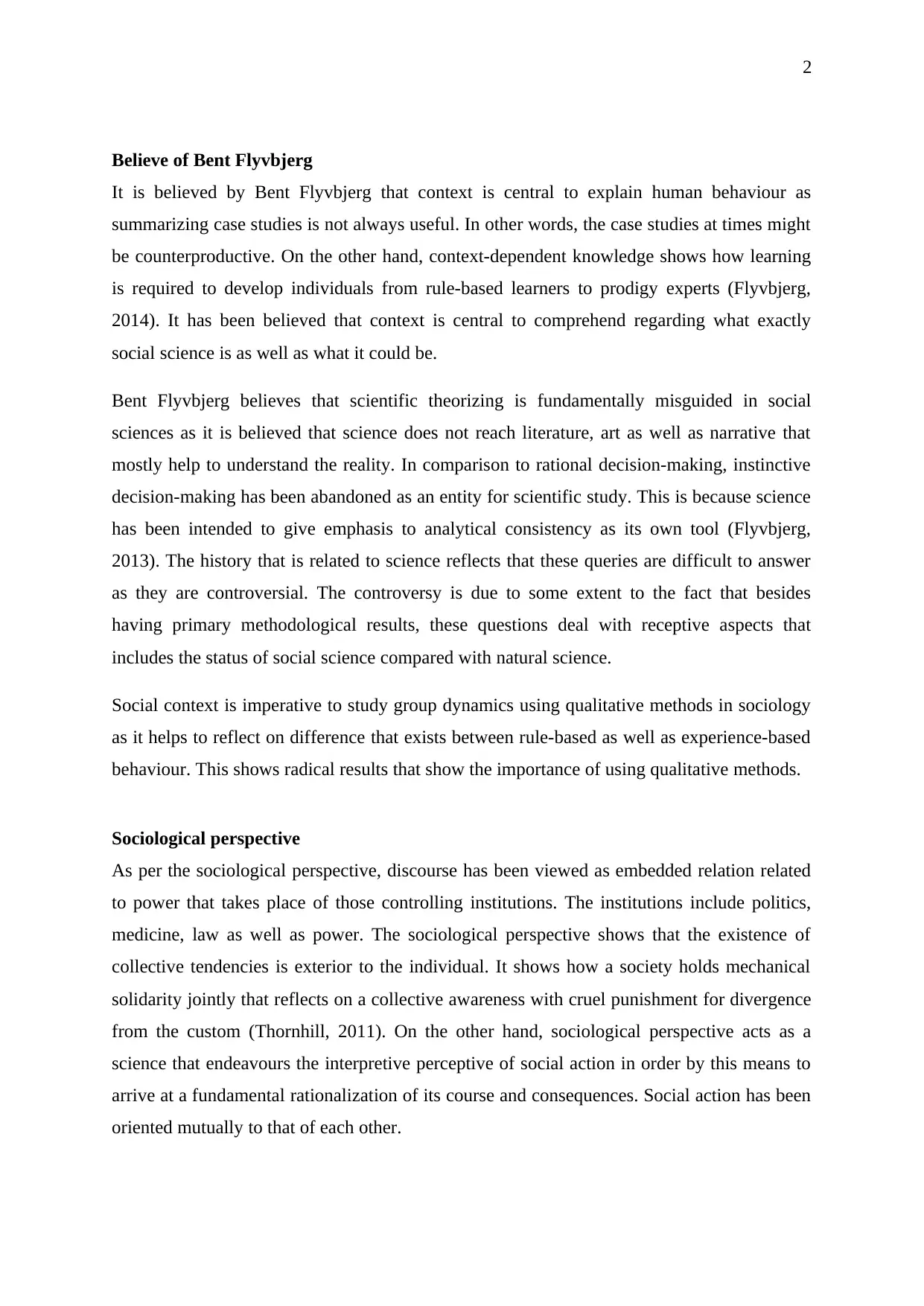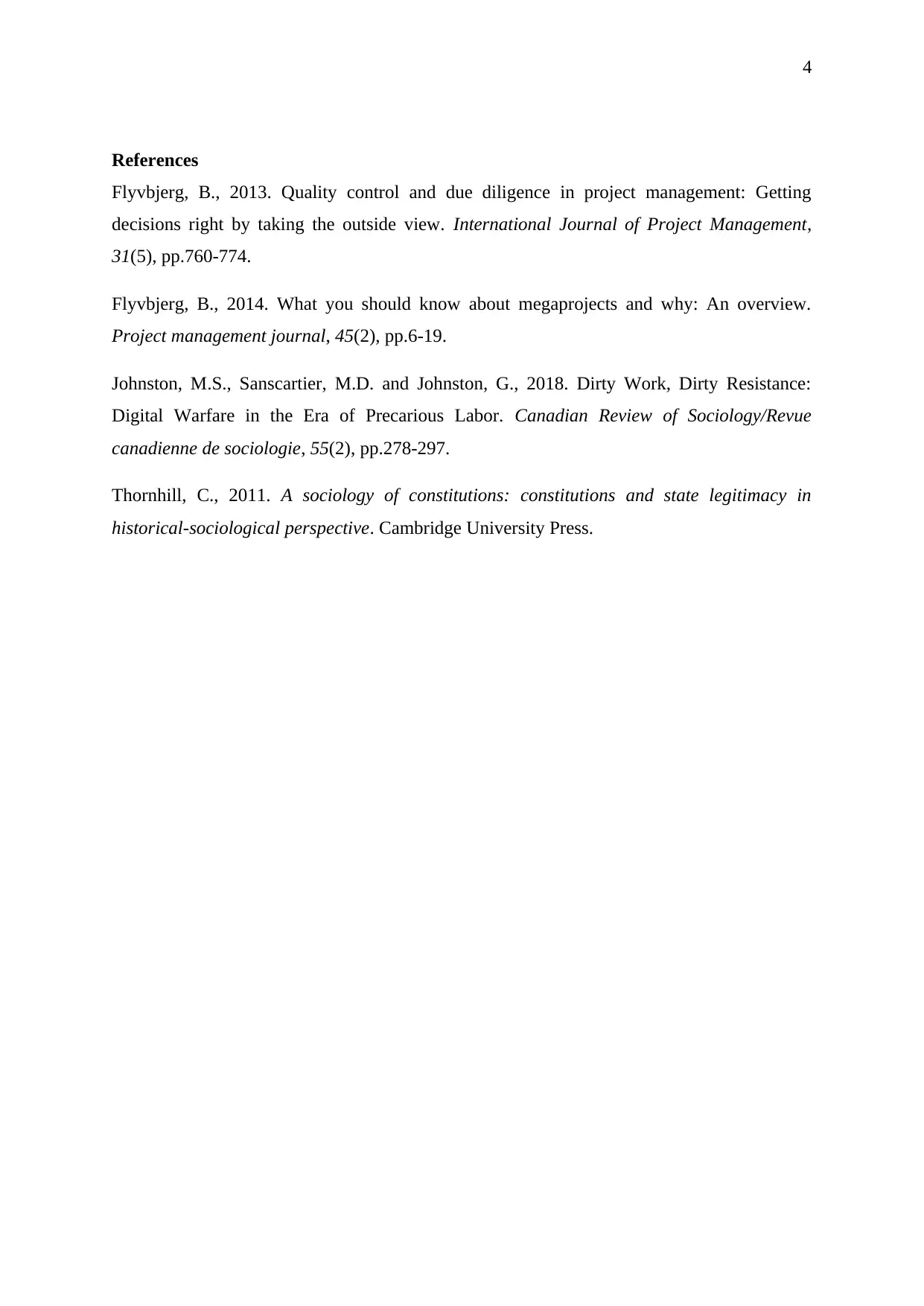Sociology Report: Context, Social Behavior, and Power Dynamics
VerifiedAdded on 2022/09/18
|4
|641
|35
Report
AI Summary
This report delves into Bent Flyvbjerg's perspective on the importance of context in understanding human behavior, arguing against the oversimplification of case studies and emphasizing the development of expertise through experience. It highlights the significance of social context in sociological studies, particularly in examining group dynamics using qualitative methods. The report also explores the sociological perspective, viewing discourse as intertwined with power structures within institutions and emphasizing the existence of collective tendencies. The analysis includes a case study illustrating issues of racism and sexism in the workplace, providing real-world examples of the concepts discussed. The report references key literature supporting these sociological arguments, providing a comprehensive overview of the subject matter.
1 out of 4







![[object Object]](/_next/static/media/star-bottom.7253800d.svg)